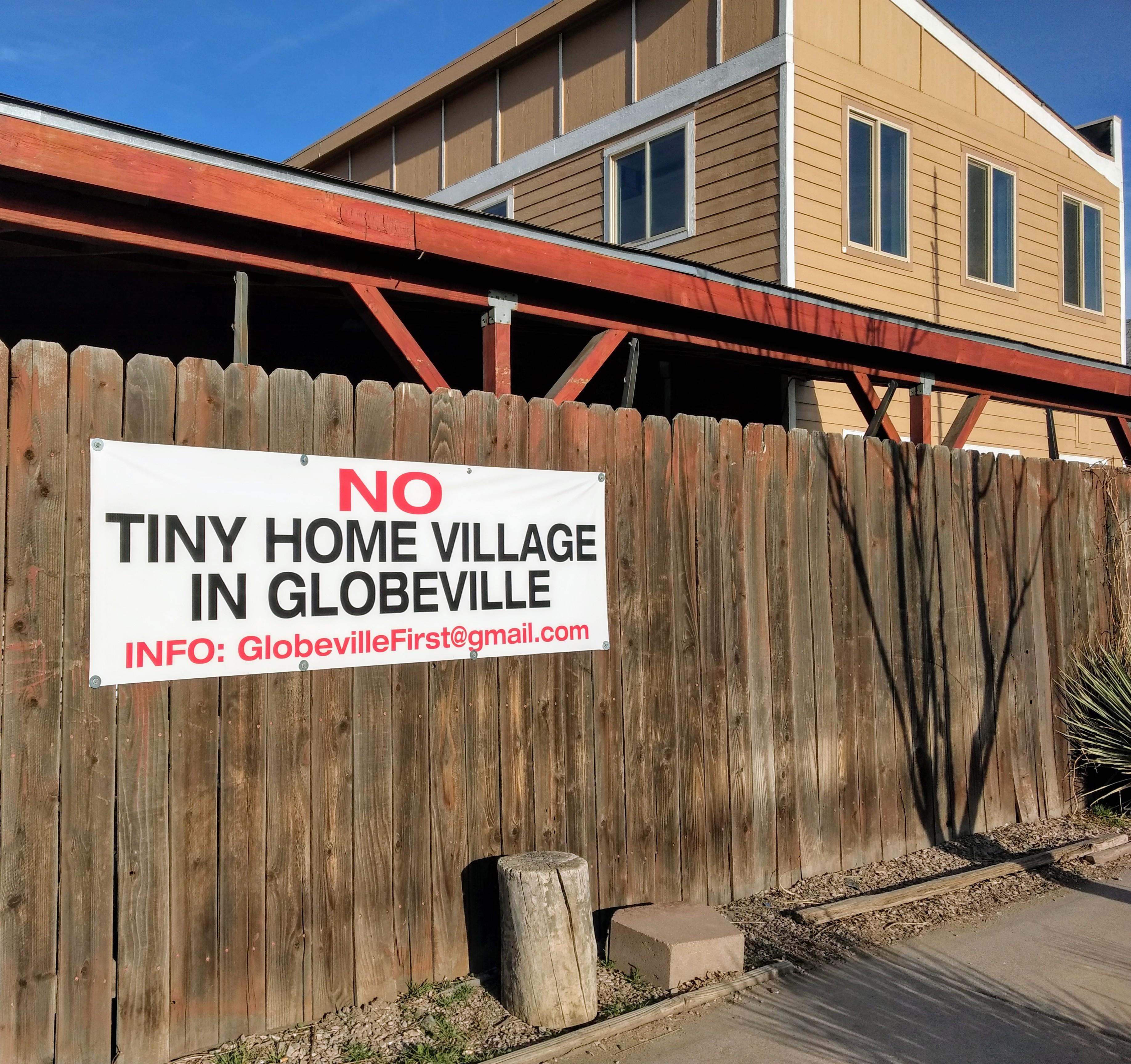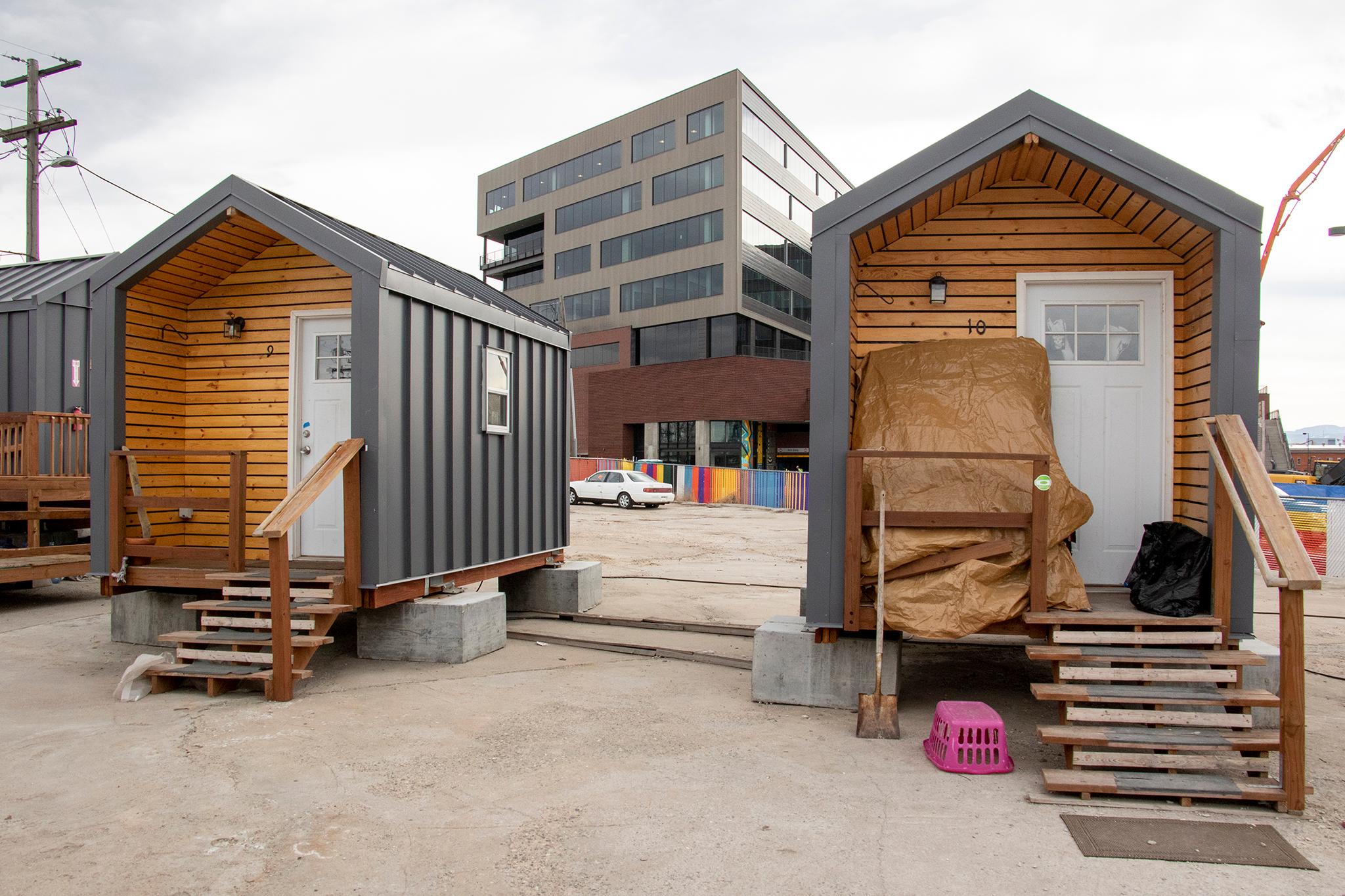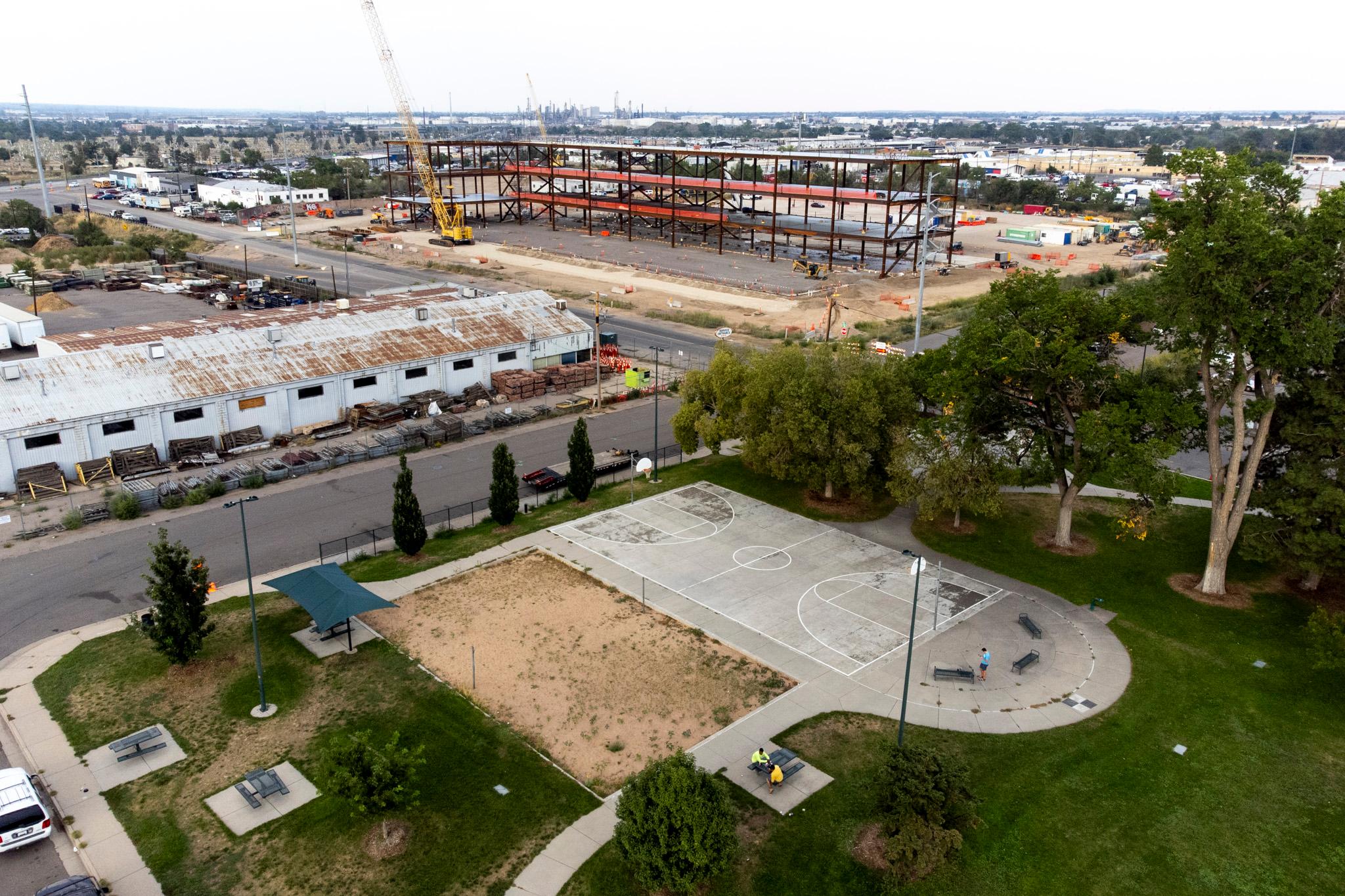After hearing from neighbors who said angrily that tiny homes for the homeless are being forced on them, Denver City Council unanimously approved a $10-a-year lease agreement allowing Beloved Community Village to be moved to a municipal plot at 4400 N. Pearl St. in Globeville.
The 13-0 vote late Monday came after city officials acknowledged the process of informing neighbors has been imperfect and hurried, but said moving the village was necessary to save a shelter alternative that could be part of a faceted strategy to address homelessness. Beloved Community Village had only two weeks left on its permit at its current location near the 38th and Blake commuter rail station.
Council members expressed sympathy for neighbors who felt they were not being heard, but said they could not cast votes that would leave village residents without homes.
"I'm just glad I get to keep my house," said Sandra Hermans, who lives at the tiny-home village. She works at a call center in Aurora and told Denverite she expects to be working her usual late shift the day the houses are moved.
"I would just like to go home at the end of my shift, plop down and go to sleep."
Some residents of Globeville, a long-neglected corner of the city with struggles that include the disruptions and displacement caused by the I-70 expansion, have said they have felt pressured to fix a problem they did not create.
"Just don't dump it on Globeville," John Oletski said of the village. He was one of 33 -- Globeville residents, neighbors of the village at its current site, researchers, community activists, leaders of nonprofits that serve people in homelessness with perspectives on both sides of the debate -- who signed up to speak during a public comment period before the vote.
One of Oletski's neighbors, Kelli Pinella, said her neighborhood needed "something positive rather than more indigent residents."

Some Globeville residents were in favor of the village. While activists, advocates for people in homelessness and others from outside Globeville spoke for the village, such support from the neighborhood was heard from fewer voices. Their passion was nonetheless evident. Globeville resident Janice Ediger said she would welcome villagers as vibrant new neighbors -- and as an alternative to "high-rise infill."
As she opened discussion of the proposal, Jill Jennings Golich, interim executive director of Community Planning and Development, said it's not been a process anyone would have liked.
But "the village is in danger of being forced to shut down, pushing people ... back into homelessness," Jennings Golich said.
Among steps taken to try to meet neighbors' concerns, the agreement on which council voted Monday was for up to three years, a year less than originally proposed. The city also promised to monitor the village closely. The current village is visited regularly by a laundry truck which, along with other support services such as connections to job and health programs, would be offered to the surrounding community at 4400 North Pearl.
Jennings Golich said good neighbor provisions had been drawn up and formed part of the lease agreement, even though no Globeville neighborhood organization had been willing to sign it. Jazz LeRoux and Derik Martinez, lifelong Globeville residents who have led the campaign against the village, told council members that they saw the proposed good neighbor agreement as a "bribe" and an attempt to divide the neighborhood.
"I think next steps is just holding CVC (Colorado Village Collaborative, the nonprofit that sponsors Beloved Community Village) and the tiny home village accountable," LeRoux told Denverite after the council's vote. He said that will involve working with them on a good neighbor agreement.
Colorado Village Collaborative has agreed to screen potential villagers to keep out sex offenders after Globeville residents expressed fears about who might be moving in. It's a significant concession by a group that has embraced the idea that barriers should be as low as possible to help people escape homelessness.
Which is not to say that Beloved Community Village has no rules. Residents can be kicked out for violence, possessing weapons or drugs, discriminating against others, being persistently disruptive or failing to participate in the communal governance structure. In the past, two villagers were expelled for breaking the rules by threatening violence involving a weapon. Five have moved on on to permanent housing and all those living there now are working, going to school or receiving disability income.
The Burnes Center on Poverty and Homelessness at the University of Denver studied the village at 38th and Blake and found it improved the employment prospects and health of its residents and that crime rates had not increased significantly within a half mile and gone down within a quarter mile of the site. It also found neighbors reported few problems associated with the village.
"We are here because the Beloved Community Village has been a success," Cole Chandler, part of the Colorado Village Collaborative leadership team, told council members Monday.
The tiny village proposal came before City Council the same night the body approved landmark status for Cableland, the 45,490-square-foot mansion where cable TV entrepreneur Bill Daniels once lived and that he gave to the city for official use. Councilman Rafael Espinoza noted the juxtaposition of Daniels's vast wealth with the poverty of both many in Globeville and residents of the tiny-home village.
"We'll memorialize this," Espinoza said of Cableland. "But we still have to tackle other issues."
For the tiny village on Pearl, a community block with a full kitchen, bathrooms and plumbing was envisioned. The current village relies on portable toilets and a bath house supplied with water from a 300-gallon tank. Cableland has 13 bathrooms.
The city had announced in January that it was offering the Pearl site to the Colorado Village Collaborative. The announcement drew protests at a subsequent series of neighborhood meetings. At one point a new neighborhood association was formed to lead the opposition to the village.
Officials from the city and Colorado Village Collaborative also have gone door-to-door in Globeville to make their case and held a neighborhood clean-up that culminated with a barbecue.
The village has been located for more than a year at the 38th and Blake plot, which is slated for the development of affordable housing. The Colorado Village Collaborative had at first hoped to move to a site it was offered at the Taxi development, but Denver's Public Works department said in November that plot was inappropriate, citing flood concerns. At the time, the village was facing a March 1 deadline to move set by the Urban Land Conservancy, the real estate nonprofit that owns the 38th and Blake lot.
On Feb. 28, with the acquiescence of the Urban Land Conservancy, a city appeals board granted the village a 180-day extension of its permit for the 38th and Blake site. But that didn't leave much time to start reaching out to residents of other neighborhoods. At any rate, city officials had looked at other municipal sites and concluded that 4400 North Pearl best met criteria that included size, accessibility to transit and zoning considerations.
Community Planning & Development said Tuesday that Beloved Community Village's move from 38th and Blake to 4400 Pearl would take place over the next three weeks. A statement from the city department added that it will be proposing amendments to both the city's zoning code and building and fire code to allow temporary structures like the village's tiny homes, which have no permanent foundations, to remain in place for up to four years when equipped with bathroom and kitchen that have plumbings. The department also is working to modernize the zoning code rules on group living.
Last summer the city's Landmark Preservation Commission derailed plans to build a different tiny home village intended for women experiencing homelessness in the parking lot of the St. Andrew's Episcopal Church campus. The congregation had supported the proposal to host eight temporary homes and two support buildings. But because the church is in a historic district -- Clements, near downtown -- the proposal required approval from Landmark, which found no historical precedent for it.














